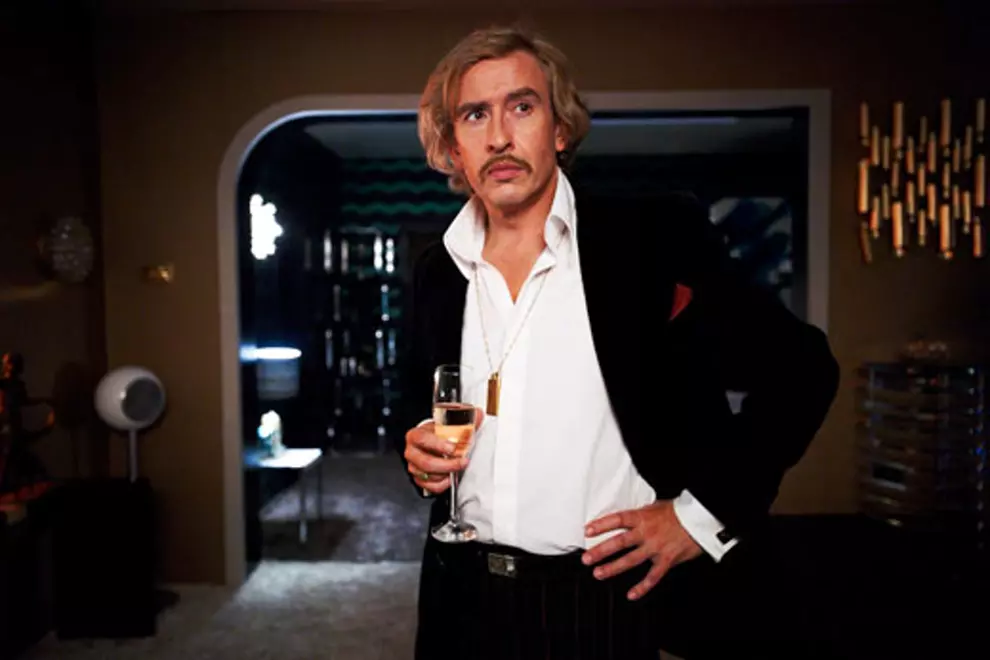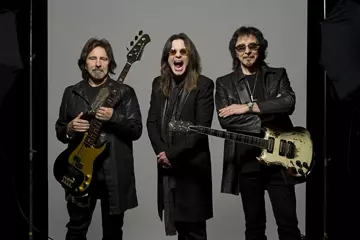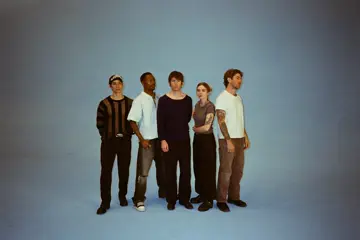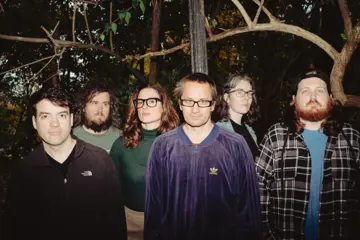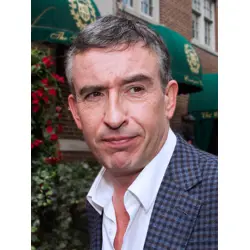 Steve Coogan
Steve Coogan"Religious fundamentalism, Puritanism, feminism, the exploitation of women, changing social mores: all these things were in the air in the '70s, and Paul Raymond was a lightning rod for them,” says Steve Coogan. Coogan is talking about Paul Raymond, the one-time 'King of Soho', who presided over a property and soft-porn empire - gentlemen's clubs and magazines - that found him as England's wealthiest man in the 1970s, and whom the English comedian and actor portrays in the biopic The Look Of Love.
“I'd say anyone under 40 in Britain would have no idea who he was,” says Coogan. “He was the subject of tabloid fodder in the '70s, so unless you've got a long memory, or you're old, you wouldn't remember.”
Now 47, the icon of English comedy has a long enough memory – or is, indeed, old enough – to remember a boyhood peering at “top-of-the-shelf soft-porn magazines” at the newsagent. “His photograph was often on the back of those magazines, so he was always this very curious figure for young lads,” says Coogan. “Looking at him now, his life seemed very colourful and surreal, and it was dealing with sex and sexuality. It seemed in some ways uncomfortable subject-matter, which meant that, paradoxically, I knew it'd be interesting to Michael and interesting for me.”
'Michael' is Michael Winterbottom, the workaholic English director whom Coogan has now worked for, as leading man, four times over; The Look Of Love following 2002's 24 Hour Party People, 2005's Tristram Shandy: A Cock And Bull Story, and 2010's The Trip. “Working with anyone else, I feel more in control, but with Michael I feel less in control,” says Coogan. “With Michael I tend not to over think things, and instead just throw myself into whatever he's suggesting. I feel like I get fresher results. Michael taught me how to act unselfconsciously. He also helped liberate me from comedy, and let me explore more subtle modes of performance. For that, I'm forever grateful to him.”
Don't miss a beat with our FREE daily newsletter
Coogan is at pains to point out a distinction between the pair's last biopic of a smart-mouthed entrepreneur, 24 Hour Party People, and this one; seeing essential differences between Paul Raymond and his prior subject, Factory Records founder Tony Wilson. “Tony Wilson was more a champion of the artist more than a businessman. Paul Raymond was the opposite, he was a businessman first; anything he did that was creative was wholly accidental,” he says. “Tony Wilson was someone who affected a lot of people's lives, someone who was beloved by a lot of artists, especially in Manchester. Paul Raymond is someone remembered by very few people, and whose life was questionable in a lot of ways.”
For all its obligatory T&A, and Boogie Nights-esque evocations of pornography in a time long, long before it was anything resembling an 'industry', the film never buys into the myth or mystique of its 'high-life'. “It's about creating a fantasy world around you and trying to convince yourself it's reality,” Coogan says. “We created this exact version of Paul Raymond's luxurious house, but then when you walked behind the set, it was all plywood. To me that serves as the perfect metaphor for his own life, because beyond all the glitz and the tinsel there was nothing of substance. He was a triumph of style-over-substance. He was almost like a living experiment: the way he lived his life was almost like a man who'd picked up GQ, and bought everything that was in the magazine, and tried to live his life by the articles in the magazine. It was as if by accessorising his life, he thought he could make himself happy. And, of course, he couldn't.”

